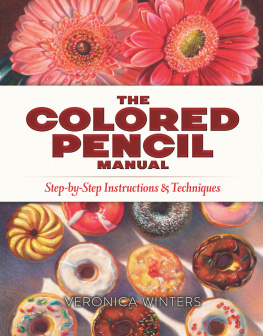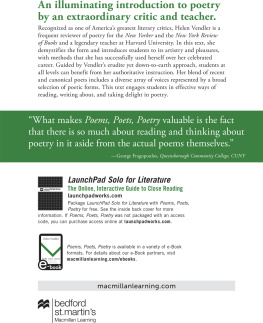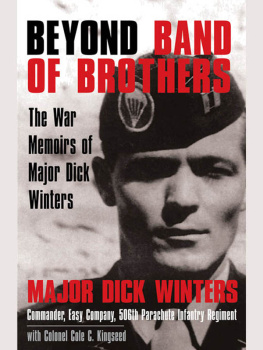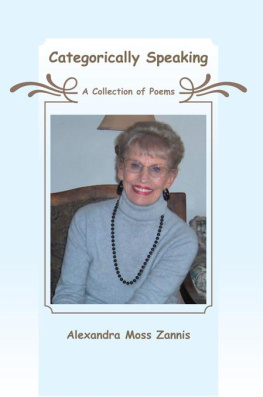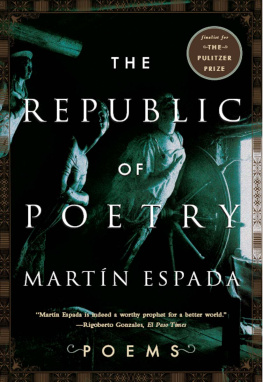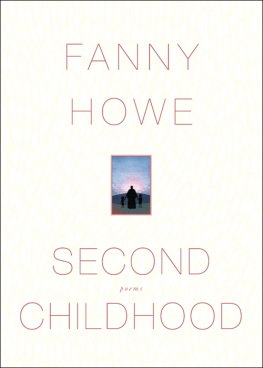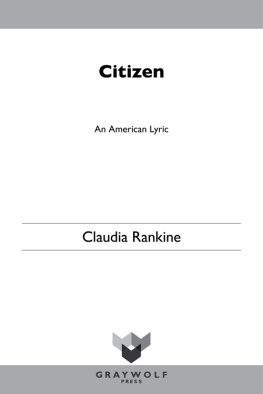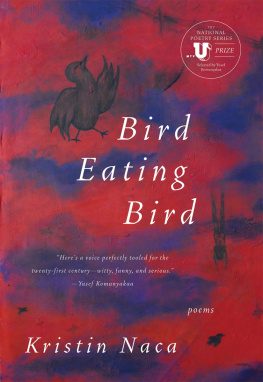THE DISPLACED OF CAPITAL
PHOENIX
POETS
THE DISPLACED OF CAPITAL
ANNE WINTERS
THE UNIVERSITY OF CHICAGO PRESS
Chicago and London
anne winters is associate professor of English at the
University of Illinois at Chicago. She is the translator of
Salamander: Selected Poems of Robert Marteau , and the author
of a book of poems, The Key to the City , published by the
University of Chicago Press.
The University of Chicago Press, Chicago 60637
The University of Chicago Press, Ltd., London
2004 by The University of Chicago
All rights reserved. Published 2004
Printed in the United States of America
13 12 11 1o 09 08 07 06 05 04 1 2 3 4 5
ISBN: 0-226-90233-1 (cloth)
ISBN: 0-226-90235-8 (paper)
Library of Congress Cataloging-in-Publication Data
Winters, Anne.
The displaced of capital / Anne Winters,
p. cm.(Phoenix poets)
ISBN 0-226-90233-1 (cloth : alk. paper)
ISBN 0-226-90235-8 (pbk. : alk. paper)
1.New York (N.Y.)Poetry. 2. Social problemsPoetry.
3. HomelessnessPoetry. 4. PovertyPoetry.
I. Title II. Series.
PS3573- I539D57 2004
813'.54dc22
2004004210
The paper used in this publication meets the minimum
requirements of the American National Standard for
Information SciencesPermanence of Paper for Printed
Library Materials, ANSI Z39.48-1992.
This book is for my daughter
Elizabeth
Acknowledgments
Grateful acknowledgment is made to the editors of publications in which the following poems first appeared:
At Length : "An Immigrant Woman"
Chicago Review: "Cold-Water Flats"
The New Yorker: "Wall and Pine: The Rain"
Paris Review: "The First Verse"; "Villanelle"
Slate : "Old Law Flats"; " Tosca with Man in Bedrock"
Storie (Rome): "The Brown Owl of Ulm"
Tikkun : "The Displaced of Capital"
Triquarterly : "Three Images"; "The Mill-Race"; "The Grass Grower"
I. THE MILL-RACE
The Mill-Race
Four-fifty. The palings of Trinity Church
Burying Ground, a few inches above the earth,
are sunk in green light. The low stones
like pale books knocked sideways. The bus so close to the curb
that brush-drops of ebony paint stand out wetly, the sunlight
seethes with vibrations, the sidewalks
on Whitehall shudder with subterranean tremors. Overhead, faint flickers
crackle down the window-paths: limpid telegraphy of the
late afternoon July thunderstorm unfurling over Manhattan.
Its set and luminous velocity, long stalks of stormlight, and then the first drops
strike their light civic stripes on the pavement.
Between the palings, oat-panicles sift a few bright
grains to the stonecourse. Above it, at shoulder height
a side door is flung open, fire-exits; streaming from lobbies
come girls and women, white girls in shadowy-striped rayon skirts, plastic
ear-hoops,
black girls in gauzy-toned nylons, ripples of cornrows and plaits,
one girl with shocked-back ash hair, lightened eyebrows;
one face from Easter Island, mauve and granitic;
thigh on thigh, waist by waist; the elbow's curlicue and the fingers'; elbow
work, heel-work,
are suddenly absorbed in the corduroyed black rubber stairs of the bus. Humid
sighs, settlings, each face tilts up to the windows'
shadowless yards of mercuric green plate glass. An
interspace then, like the slowing of some rural
water-mill, a creaking and dipping pause
of black-splintered paddles, the irregularly
dappled off-lightingbottle-greenthe lucid slim sluice
falling back in a stream from the plank edge. It won't take us
altogether, we say, the mill-raceit won't churn us up altogether. We'll keep
a glib stretch of leisure water, like our self's selfto reflect the sky.
But we won't (says the bus rider now to herself). Nothing's
left over, really, from labor. They've taken it all for the mill-race.
In close-ups now, you can see it in every face,
despite the roped rain light pouring down the bus-windows
it's the strain of gravity itself, of life hours cut off and offered
to the voice that says "Give me this day your
life, that is LABOR, and I'll give you back
one day, then another. For mine are the terms."
It's gravity, spilling in capillaries, cheek-tissue trembling,
despite the make-up, the monograms, the mass-market designer scarves,
the army of signs disowning the workplace and longing for night...
But even as the rain slackens, labor
lengthens itself along Broadway. The night signs
come on, that wit has set up to draw money: o'donnell's,
beirut cafe, yonah's knish ... People dart out from awnings.
The old man at the kiosk starts his late shift, whipping off rainstreaked
lucite sheets from his stacks of late-market newsprint.
If there is leisure, bus-riders, it's not for you,
not between here and uptown or here and the Bronx.
Outside Marine Midland, the black sea of unmarked corporate hire-cars
waits for the belated office lights, the long rainy run to the exurbs;
and perhaps on a converted barn roof in Connecticut
leisure may silver the shingles, somewhere the densely packed
labor-mines that run a half mile down from the sky
to the Battery rise, metamorphic, in water-gardens,
lichened windows where the lamp lights Thucydides or Gibbon.
It's not a water-mill really, labor. It's like the nocturnal
paper-mill pulverizing, crushing each fiber of rag into atoms,
or the workhouse tread-mill, smooth-lipped, that wore down a London of
doxies and sharps,
or the flour-mill, farique, that raised the cathedrals and wore out hosts of dust
demons,
but it's mostly the miller's curse-gift, forgotten of God yet still grinding, the salt
mill, that makes the sea, salt.
The Grass Grower
I
In 1979, a woman who lived in West Harlem took a snapshot of a man who grew grass in the courtyard, her father-in-law. In a summer hat, the thin face acute, serene... As on the first day
I glimpsed his counter and sign, joel harmon, radio repairs,
propped in
or part of the pawnshop's mixed economy, so those last evenings
you seemed to be simply conducting, in silence, your life.
My brow pressed to the shop-pane, the shade of the cast iron balls
and Amsterdam's carhorns, a dog somewhere snapping and whining
inside, arms angled strangely, you were prising
a cathedral radio's cabinet from its mounting. It was 1949.
I was in the sixth grade, and slow to go home. I'd drift through the shop
you kept alone at that hour, or climb on a stool and listen; for we
talked a lot, in that early time, or you did. Flipping knobs, half-effacing
your cool inflections with qxr or local Harlem
"race-music"... Shawville, a town west of Selma, you named
as a birthplace, and Georgia, where you were married.
"Alabama's no place for the black man" (you said) "but a Jim Crow town
in North Georgia is hurtful to man, displeasing to God."
Line by line you gave me Jim's portrait, his subtle subsets. "Say you're
colored, got to go downtown out of your own partmake sure
you don't drink water, and think through your memory-map
where you're going 'Here I can hand in prescriptions, but stay
standing up.' Or 'There I can sit: Jim-Crowed to the end of the counter.'
There's no signs, like some think up hereyou work it yourself." You ignored
our own strange suchness (seemed to), skinny white kid, black vet with pale
burn-bubbles on his forearms. You preferred historytold me how slaving
marched almost
as many to death as Hitler, Stalinliked words
that bit into things, anecdotes, numbers



